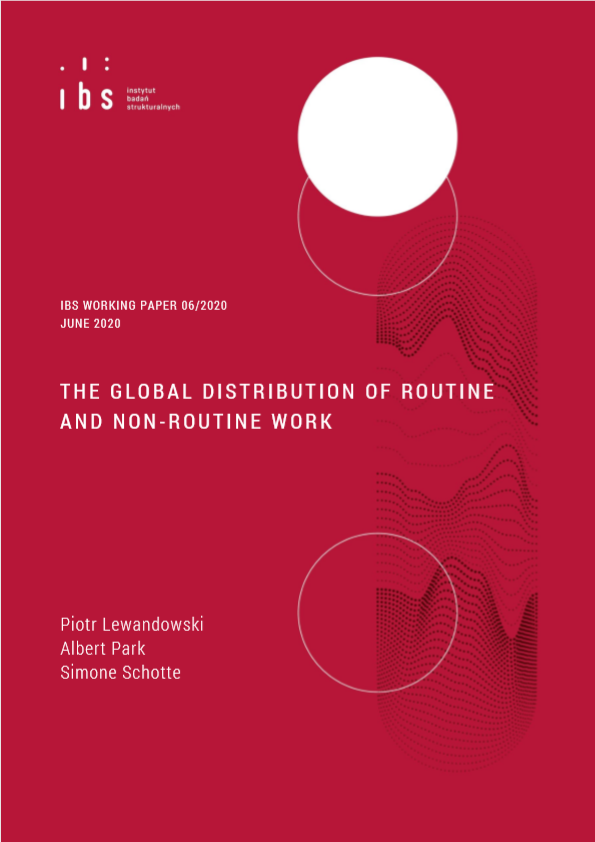Studies of the effects of technology and globalization on employment and inequality commonly assume that occupations are identical around the world in the job tasks they require. To relax this assumption, we develop a regression-based methodology to predict the country-specific routine task intensity (RTI) of occupations based on survey data collected in 46 low-, middle- and high-income countries. We find that within the same occupation jobs in low- and middle-income countries are more routine intensive than in high-income countries. We attribute these differences mainly to lower technology use in less-developed countries. Using predicted country-specific RTI measures for 87 countries that together employ more than 2.5 billion workers, we find that from 2000 to 2017 the shift away from routine work and towards non-routine work in low- and middle-income countries was much slower than in the high-income countries. The gap in average RTI increased and high-income countries remain the dominant provider of non-routine work. In contrast, assuming that occupations are identical around the world significantly overestimates the role of non-routine tasks in low- and middle-income countries and leads to an implausible conclusion that they have become the dominant supplier of non-routine work.

We thank Adam Bielski and Karol Madoń for excellent research assistance. We also thank participants of the LISER-IAB Conference on Digital Transformation and the Future of Work for their insightful comments. We acknowledge support from UNU-WIDER, and the Hong Kong Research Grants Council General Research Fund [16504217]. This study is reproduced here with full acknowledgement of UNU-WIDER, Helsinki. The study was originally published under the UNU-WIDER project The changing nature of work and inequality, which is part of a larger research project on Inequalities – measurement, implications, and influencing change. The usual disclaimers apply. All errors are our own.

